The Best Prog Rock Bassists Of All Time Ranked
The term “progressive rock” is synonymous with “art rock”, “classical rock” (not to be confused with classic rock), and “symphonic rock”. Historically, “art rock” has been used to describe at least two related, but distinct, types of rock music. The first is progressive rock as it is generally understood, while the second usage refers to groups who rejected psychedelia and the hippie counterculture in favour of a modernist, avant-garde approach. Similarities between the two terms are that they both describe a mostly British attempt to elevate rock music to new levels of artistic credibility. However, art rock is more likely to have experimental or avant-garde influences. “Prog” was devised in the 1990s as a shorthand term, but later became a transferable adjective, also suggesting a wider palette than that drawn on by the most popular 1970s bands. Progressive rock is varied and is based on fusions of styles, approaches, and genres, tapping into broader cultural resonances that connect to avant-garde art, classical music and folk music, performance and the moving image. Although a unidirectional English “progressive” style emerged in the late 1960s, by 1967, progressive rock had come to constitute a diversity of loosely associated style codes. When the “progressive” label arrived, the music was dubbed “progressive pop” before it was called “progressive rock”, with the term “progressive” referring to the wide range of attempts to break with standard pop music formula. A number of additional factors contributed to the acquired “progressive” label: lyrics were more poetic; technology was harnessed for new sounds; music approached the condition of “art”; some harmonic language was imported from jazz and 19th-century classical music; the album format overtook singles; and the studio, rather than the stage, became the focus of musical activity, which often involved creating music for listening, not dancing. Here are all of the best Prog Rock Bassists of all time ranked.
See more: The Best Metal Drummers Of All Time Ranked
See more: The Best Country Singers Of All Time Ranked
20. Nic Potter

“Van der Graaf made do without a bass player for much of its career, but Potter was essential on two early albums, and again on the 1978 live set Vital. It’s his work on the latter that lands him here, playing some of the dirtiest, punk-inspired bass ever captured on a prog album – no surprise he wound up in a punk band (the Tigers on A&M) just afterward.”
19. Tal Wilkenfeld

“Her solo assembly, groove, and the ability to attract the crowd and bring her to the climax in a short amount of time are all amazing! And the musicality of her first album should be appreciated more. It’s a shame that she has become a dark vocalist and it’s a huge loss to her music world.”
18. Scott Thune

“One of my favorite bass players of all time – his bass playing on the Zappa stuff is great but he also played a really cool bass line on Western Vacation’s “Burning Flame”. I get the idea he was a nose to the grindstone practicer and some guys didn’t like that type of work ethic. Too bad.”
17. Billy Sherwood
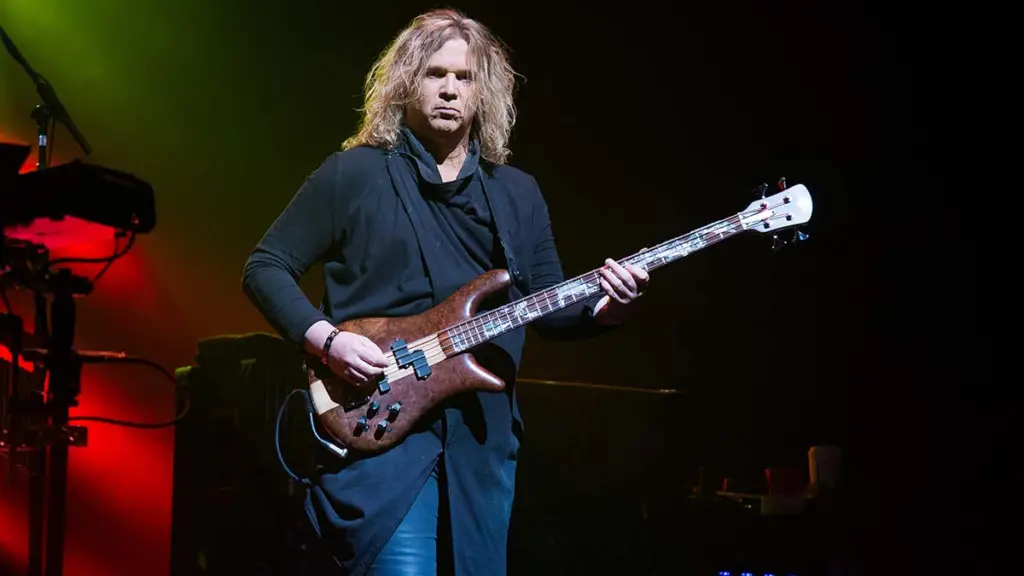
“For the past thirty years Billy Sherwood has been involved with the band Yes to varying degrees: songwriter, touring support musician, producer, full-time member, friend and finally, filling the role of the late Chris Squire on bass. During that time, Sherwood’s own career has flourished and traveled many roads, from early bands like World Trade and Lodgic to starting Yes off-shoot bands Circa and Yoso, to his own extensive catalog of solo albums.”
16. Esperanza Spalding

“There is entertainment, then there is music. Entertainment is what we are “treated” to in the top 40 lists, the gossip about music celebrities, and “who really cares what Kanye did this week?” Then there is Esperanza—this is what music, and musicianship, are meant to be. This artist is both a beautiful soul and a generational talent.”
15. Les Claypool
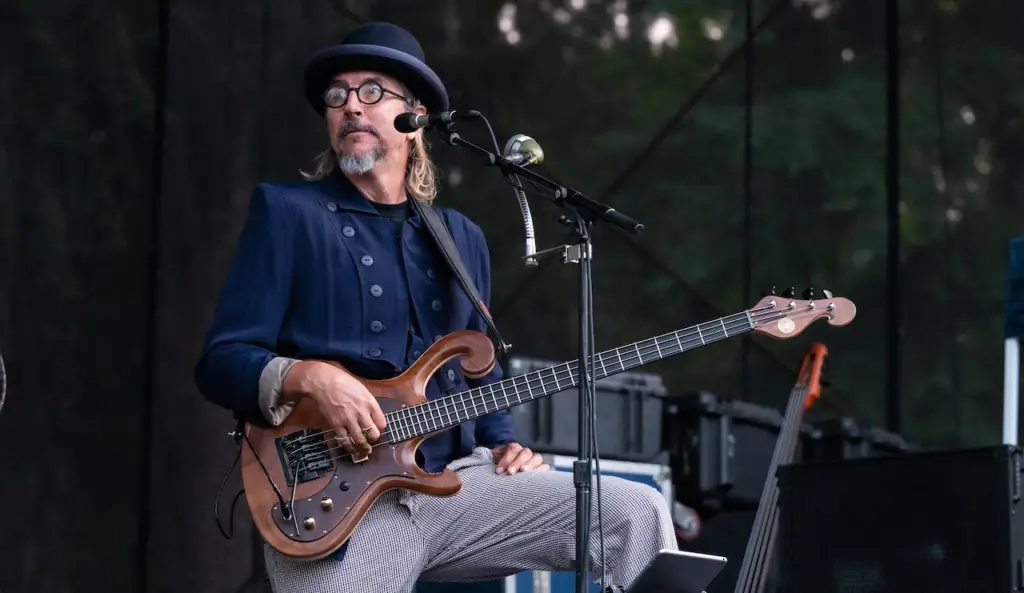
“Les is able to write between the lines of “standard” music but has the ability to keep in interesting not abstract. What I love about Primus is the way Les incorporates pretty much every genre of music without sounding like any genre of music.”
14. Pekka Pohjola

“Originally the bassist for Finland’s best (and probably only) internationally known prog band Wigwam, Pohjola always worked melodic ideas into his basslines, suggesting that he was itching to branch out as a composer”
13. Glenn Cornick

“Glenn had it all, in terms of a bass player. He was very solid, his parts were interesting and actually made it feel like the songs really moved! Very sad to learn of his passing. He was a cool and friendly dude and knew how to groove”
12. Percy Jones
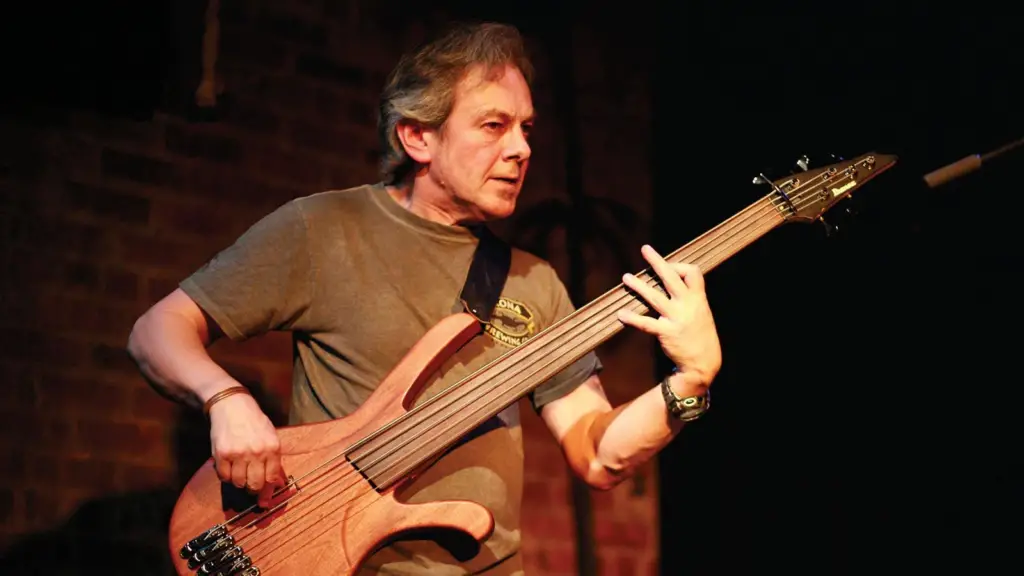
“Percy Jones is an original. The sounds he gets out of his bass are astounding. This is a guy who could do a movie soundtrack just using his fretless bass. He gets that much personal expression. A total original bass playing genius.. no one can hear what Percy hears.”
11. Julie Slick

“Known for her adventurous bass lines and bold sonic experiments, Julie Slick (Adrian Belew Power Trio, EchoTest) came to the Aguilar Artist Loft armed with her Tone Hammer 500, SL 112 cabinets, TLC compressor and Lakland 55-64 and Decade 6 basses. Whether tackling the intricate melodies of Adrian Belew’s “B3” or creating the gorgeous soundscapes of her EchoTest material, Julie wove a multi-layered bass tapestry that was nothing less than inspiring.”
10. Dave Pegg

“This great player tends to get pegged (sorry) as a folk-rock bassist, due to his long stint in Fairport Convention. But he also helped make them a harder-rocking outfit, when he replaced the more traditionally-minded Ashley Hutchings. And he came into Tull just as they were coming out of their folk-rock period, venturing into the modern rock territory of A and Broadsword & the Beast.”
9. Holger Czukay

“Can’s cofounder never considered himself a proficient bassist, but that’s beside the point: He expanded the sonic and textural possibilities of bass guitar, laying down some of the quirkiest grooves ever recorded. “Pinch” and “Soup” (both from 1972’s Ege Bamyasi) were left-field yet funky, and proved highly influential.”
8. Hugh Hopper

“A key player in the fertile Canterbury scene, Hopper didn’t so much step over the jazz/rock/avant-garde boundaries as ignore them completely. His playing on “Facelift” (one of four side-long tracks on Soft Machine’s Third) is a bass catalogue in itself – from the drones in the opening atonal section, to the heavy riffage as the piece fires up, to the eerie calm at the end, where Hopper is apparently playing forwards as the rest of the band is recorded backward.”
7. Jon Camp

“Jon Camp is generally an excellent inventive and musical bass player.He describes his own playing as more like that of a cellist, which is a good approach in my my books; playing contrapuntal melody lines rather than just “Plodding” the route notes.”
6. Greg Lake
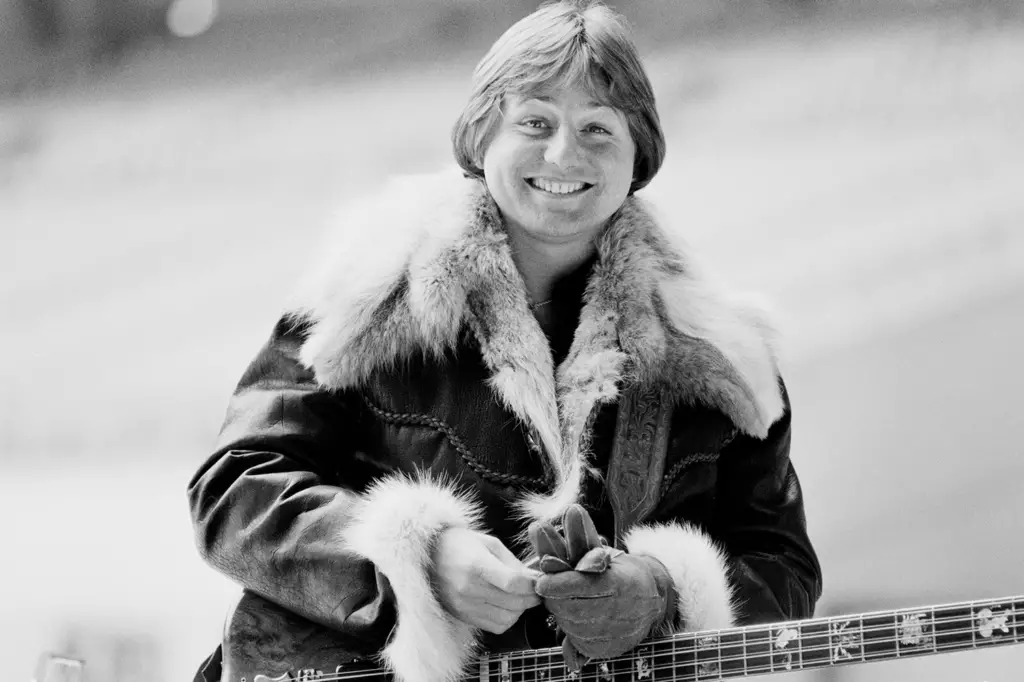
“His voice never ceases to amaze me! He doesn’t need any accompaniment. His voice just flows down from Heaven. This, and Jeffrey Osborne’s, “Little Drummer Boy”, are my favorite Christmas songs. When you’re playing with one of the flashiest drummers and most flamboyant keyboardists in prog history, you’d better be a rock-solid prog rock bassist.”
5. Mike Rutherford

“Long before he took over the lead guitar slot in Genesis, Mike Rutherford played bass like a frustrated lead guitarist. And that was a wonderful thing, resulting in some of the band’s most muscular moments – the fuzz bass lead in “The Lamb Lies Down on Broadway,” the busy riffing in “…In That Quiet Earth,” the barrage of rhythm in “Los Endos.”
4. John Wetton
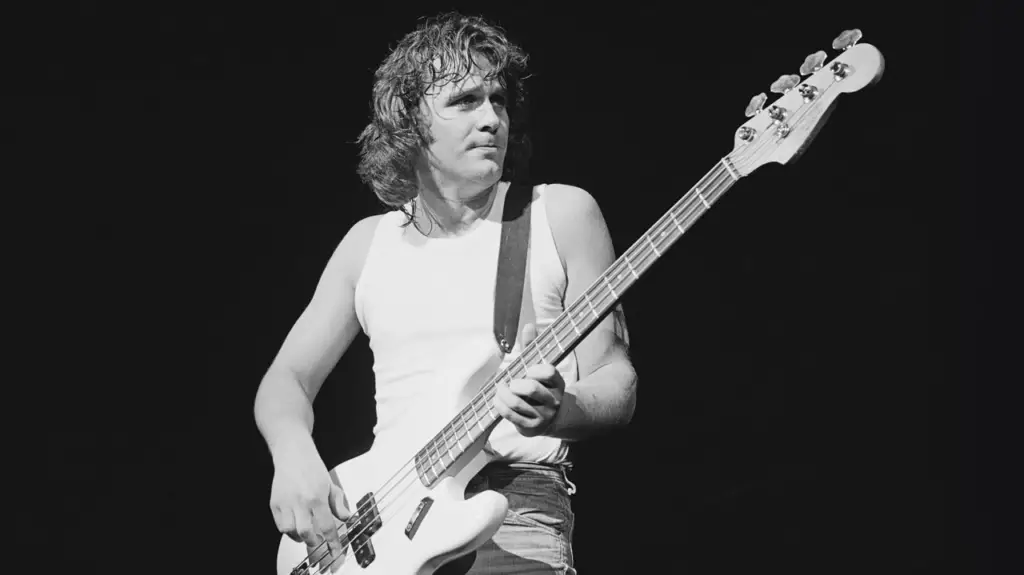
“John Wetton was so good at singing – and so famous for it in his Asia days – that his greatness as a prog bassist tends to get overlooked. But look no further than a vintage King Crimson track like “Larks Tongues in Aspic, Part 1,” where his wah-wah bass put the fuel in a ferocious jam; or to the heavy bass riff on UK’s “In the Dead of Night.”
3. Tony Levin
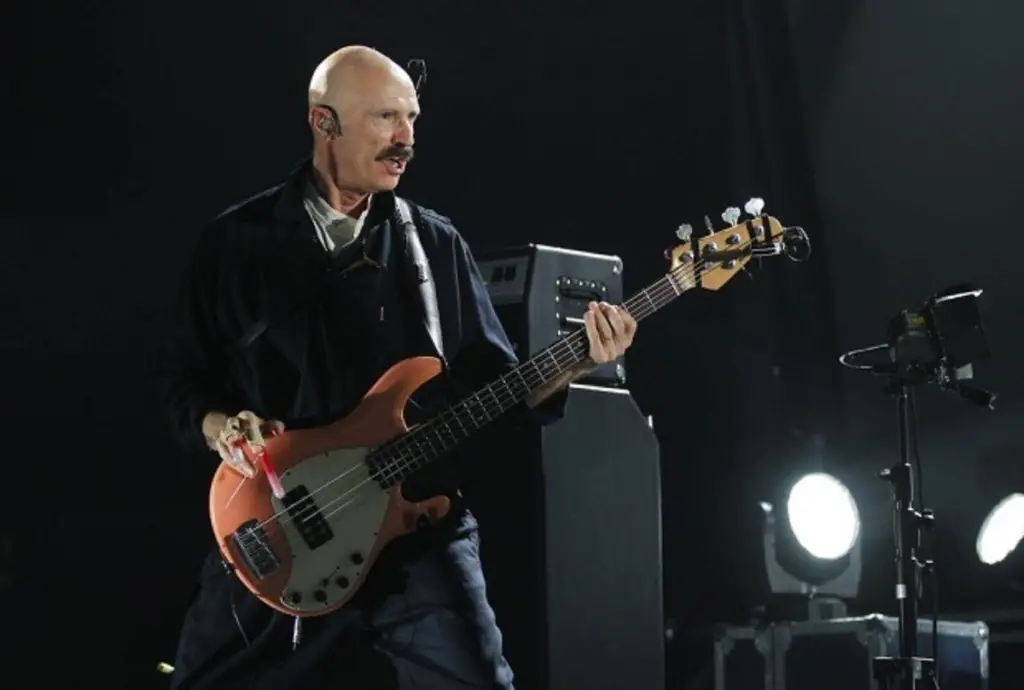
“I have the Levin Brother’s album and it’s sensational. It suits so many moods and situations. It is sophisticated enough to stand up to close scrutiny and attention as well as a wonderful back-ground track to a wonderful day, or evening with friends. I heartily recommend the album”
2. Geddy Lee

“Geddy Lee is best known as the vocalist, bassist, and keyboard player for the rock group Rush, which also features drummer Neil Peart and guitarist Alex Lifeson. Lee’s spectacular bass-playing ability has earned him a reputation similar to that of his bandmates. All three share the distinction of being among the most highly influential virtuosos in their crafts.”
1. Chris Squire

“Chris Squire is the only musician to be a part of every YES album. He was far most instrumental to the sound of YES than most people realize. A humble man as well. Every bass line of “Fragile” is etched into my synaptic pathways. Chris will live on as long as we remember him.”


Hello very cool webb site!! Guyy .. Excellent ..
Superb .. I’ll bookmark your web site and take thhe feeds also?
I’m satisfied to ind a lot of helpful information here
in the publish, we’d like develop exta strategies in this regard, thank you for sharing.
. . . . .
My webpage; youtube
I have not checked in here for some time as I thought it was getting boring, but the last several posts are great quality so I guess I will add you back to my daily bloglist. You deserve it my friend 🙂